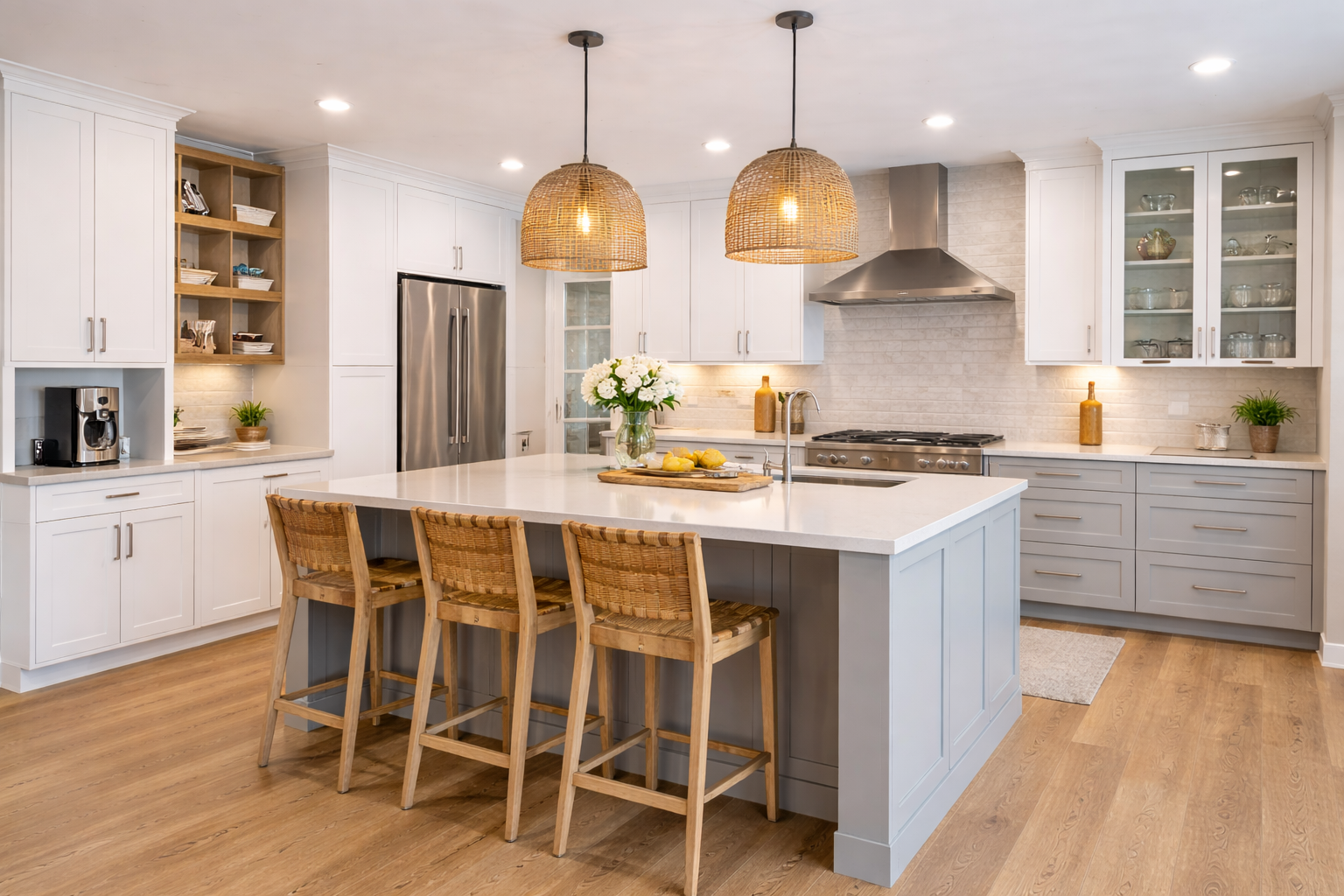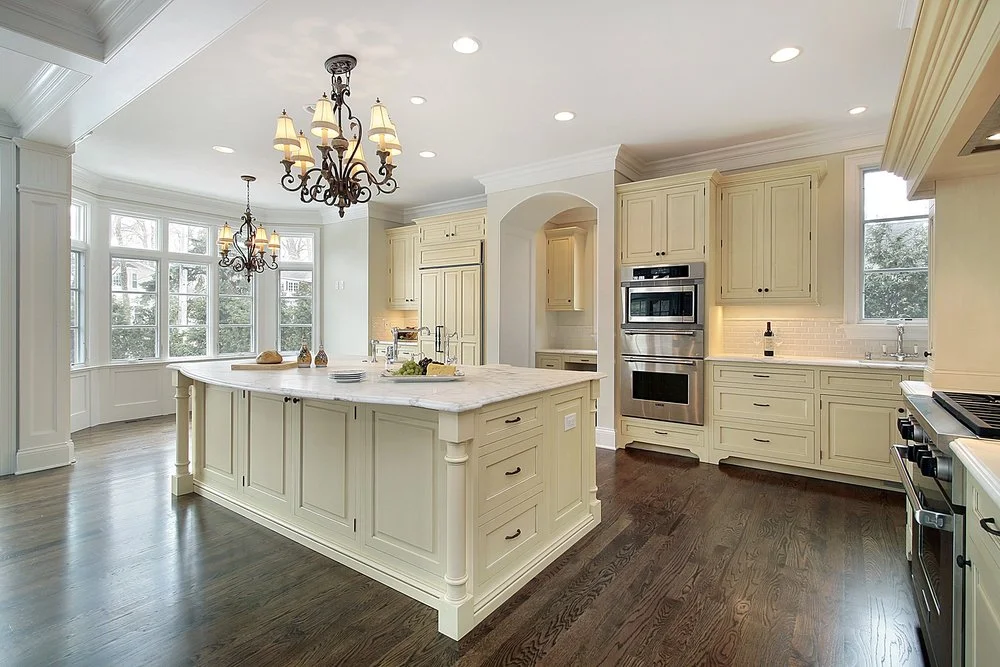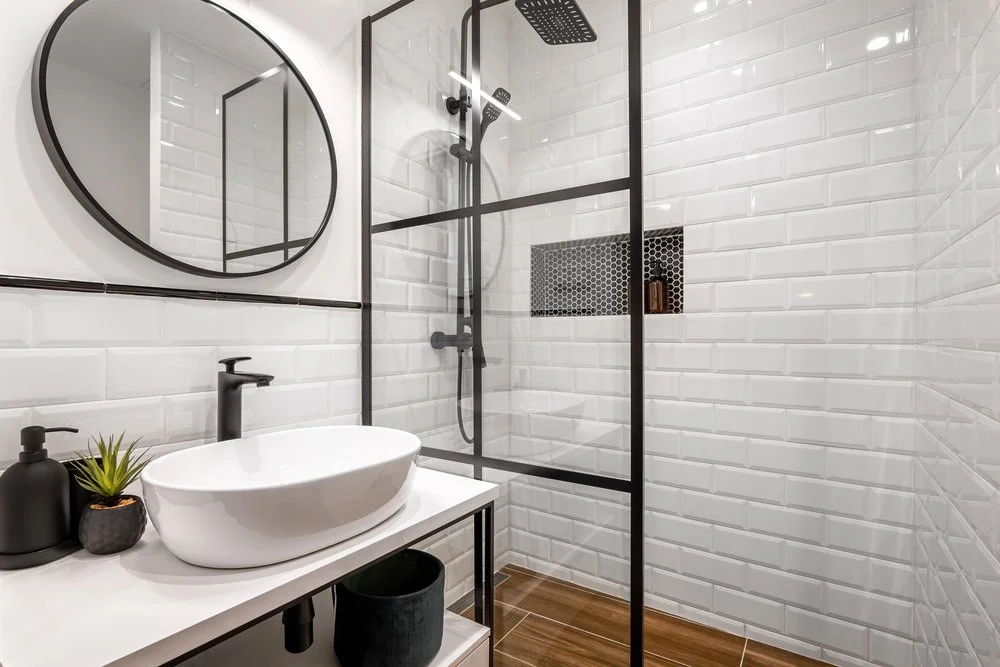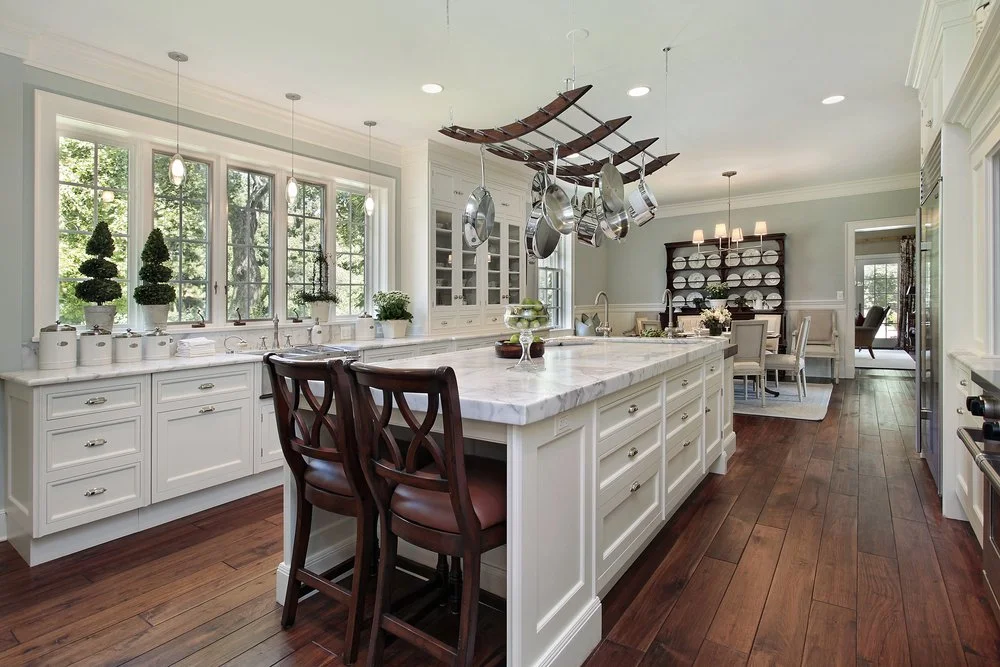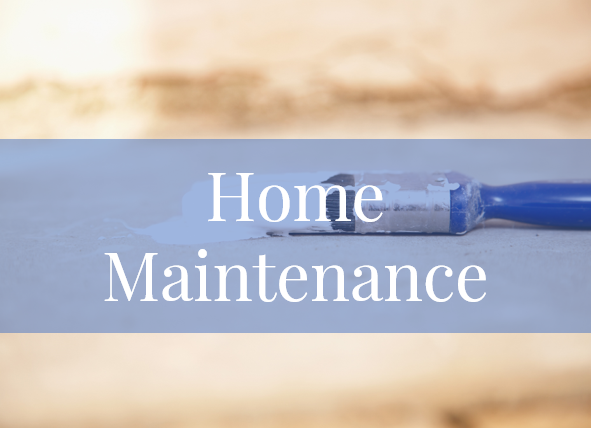7 Ways to Pay for Your Home Renovation Without Going Bankrupt
/Whether you've been in your home for a few months or for a few decades, every home could use a little TLC. But how do you pay for those much-needed renovations?
Whether it's a small update or a major overhaul, you need to figure out where the money is going to come from to pay for it. We offer a few ideas on how you can pay for your home's repairs and renovations.
Prefer to listen?
The Best Policy
Although we will provide you with several options for paying for your repairs and renovations, without a doubt, the best policy is to save up the necessary money for your renovation and ultimately only get done what you have already saved for.
I was brought up to believe that you never buy anything that you can't afford to pay for up front. I still maintain that philosophy today and try not to make purchases that I haven't already saved up for.
However, the reality is that sometimes you need to make purchases that aren't realistic to save up for. I have a mortgage on my house and only recently paid off the loan on my car. Sometimes we need to make purchases that just aren't realistic to save up for.
Is Your Repair or Renovation Small Enough to Save For?
Since we all know it's better to save up to pay for things, consider the size of your home repair or renovation. There are a few questions you should ask yourself to determine if this is reasonable.
Is the repair or renovation non-urgent enough that you can wait until you've saved up enough?
If you are tired of that olive green tub and toilet in your bathroom and just can't stand the floral wallpaper that matches the toilet, you could probably wait a little longer until you've saved up enough money to renovate. The bathroom is still functional, just not as pretty as you'd like.
However, if you've got a leak in your shower and tiles are starting to fall off from the mouldy, wet drywall behind it, that's a different scenario entirely. That's an urgent situation that needs to be addressed as soon as possible for everyone's health and safety. There isn't time to save up the money to pay for the repair or renovation. It needs to be done now.
Is the repair or renovation small enough that you could save up the money within 6 months?
If you're unsure how much the repair or renovation will cost (and I mean really cost, not what you think it will cost), then call some contractors to get some quotes. You can also research or Google the cost of your project.
A great website that will provide you with some insight is Homewyse. Although it's an American site, you can input the zip code for an area in the States that might be similar to where you live.
I find this site to be fairly accurate for pricing. It provides the lows and highs of each project as well as detailing where the cost comes from. I recommend always going with the high-end price for your estimating.
Once you've determined how much you can expect to pay for your project, divide it by 6 and ask yourself if you have enough disposable income to set that amount aside for the next 6 months. If you do, then it might be worthwhile finding your perfect contractor now and booking the job for six months from now. Most good contractors will be booked out for 3–4 months anyway, so this would be the perfect way to give you plenty of time to find just the right person.
Do you have enough money already saved up?
In some instances, you may already have enough money in the bank, an Earn More Savings Account, a term deposit, or another investment. If that's the case, then you need to talk to your bank or financial advisor to determine if it's worth it to use some of your assets to pay for your repair or renovation.
Some of my clients have told me that although they had enough money already saved up for the renovation, they were earning enough in interest or dividends that it didn't make sense to cash them in. You have to determine what's right for you.
What to Do When Saving Money for the Project Isn’t an Option
Sometimes you either need the renovation or repair done right away, or saving the money for it would just take too long. So what options do you have?
When financing your project is your only choice, you need to consider your monthly budget, the return on your investment (because the money you put into your home is more often an investment than just an expense), how long the renovation will take, and whether it will increase the value of your home.
1. HELOC
A Home Equity Line of Credit (HELOC) is a common way to finance large home repairs or renovations. A HELOC is a secured loan that uses your home as collateral. Because of this, ensure you have at least 15–20% equity in your home before you apply.
The biggest advantage of a HELOC is the lower interest rate you usually qualify for. It's also revolving credit, which means you only need to take out what you need when you need it.
It allows for quick access to funds, and you can usually pay it back any time you can afford it.
The biggest disadvantage of this type of financing is that your home is the collateral. That means that if you miss payments regularly, you could lose your home. Also, a lot of HELOCs have variable interest rates, which means you could be paying more interest over time.
2. Home Repair Loans
Home improvement loans are usually unsecured personal loans offered by banks, credit unions, and some online lenders. You don't need to put your home up as collateral, but that usually means you'll be paying a higher interest rate.
Your interest rate is based on your credit score, but generally, you will have access to the funds very quickly, often within a day or so.
The disadvantage of these loans is that they usually have shorter repayment timelines and lower loan amounts. That means that if you've got a major renovation you're planning, this may not be the right option for you.
There may also be lender fees for the application process and late payments, and some lenders will even charge a fee for early prepayments to pay off the loan.
3. Home Equity Loan
This is different than a HELOC, which allows you to just take whatever money you need when you need it. A Home Equity Loan is often called a second mortgage and uses your home as collateral. You will get the entire amount as a lump sum and then repay it over many years with monthly payments.
The advantage of this type of loan is similar to a mortgage. Once you lock in the interest amount, that doesn't change over the course of the loan. However, the disadvantage is that you don't have the flexibility to pay it off at any time, as you would with a HELOC.
4. Mortgage Refinancing
This option involves replacing your current mortgage with a new one at a new interest rate. If you currently owe $100,000 on your mortgage and you want to do a $50K kitchen renovation, you refinance a new mortgage for $150K.
If your mortgage is coming up for renewal, this might be a good option for you, but there are a lot of drawbacks too. You will typically need a new appraisal, have closing costs, and pay lawyer fees. Explore this option carefully before you decide it's right for you. This is usually only a good option if you can get a lower interest rate than you had before.
5. Credit Cards
I'm not a fan of this option unless you're paying off your balances each month. The interest rates that credit cards charge are outrageous, and you can end up in a lot of trouble if you carry large balances every month.
However, you might want to pay for part of your renovations or repairs with your credit card if your contractor allows it. Many contractors don't accept credit cards as payment, so check with them first.
6. Financing With Your Contractor
Some contractors offer financing through their company. Sometimes it's just a zero-interest loan with three months to pay, or it could actually be fully financed through a company they have an established relationship with. Ask your contractor if they offer options for financing.
Final words...
It is always best to save up the money to pay for home repairs or renovations. However, there will be times when you need to borrow money. Talk to your bank or financial advisor to find out which option is best for you.
Make sure you do your homework beforehand and find out how much your renovation will cost, and then add another 20% to that for a contingency.
For more relevant information on renovations and paying for them, check out the link below:
Why You Should Allow a Contingency for your Renovation Project
Why you Shouldn’t Do Cash Deals









